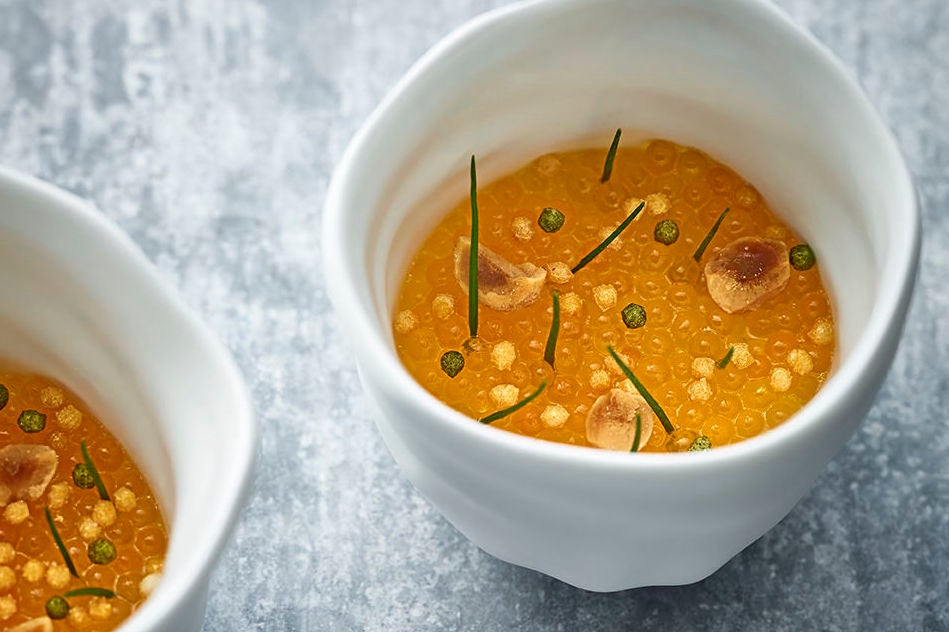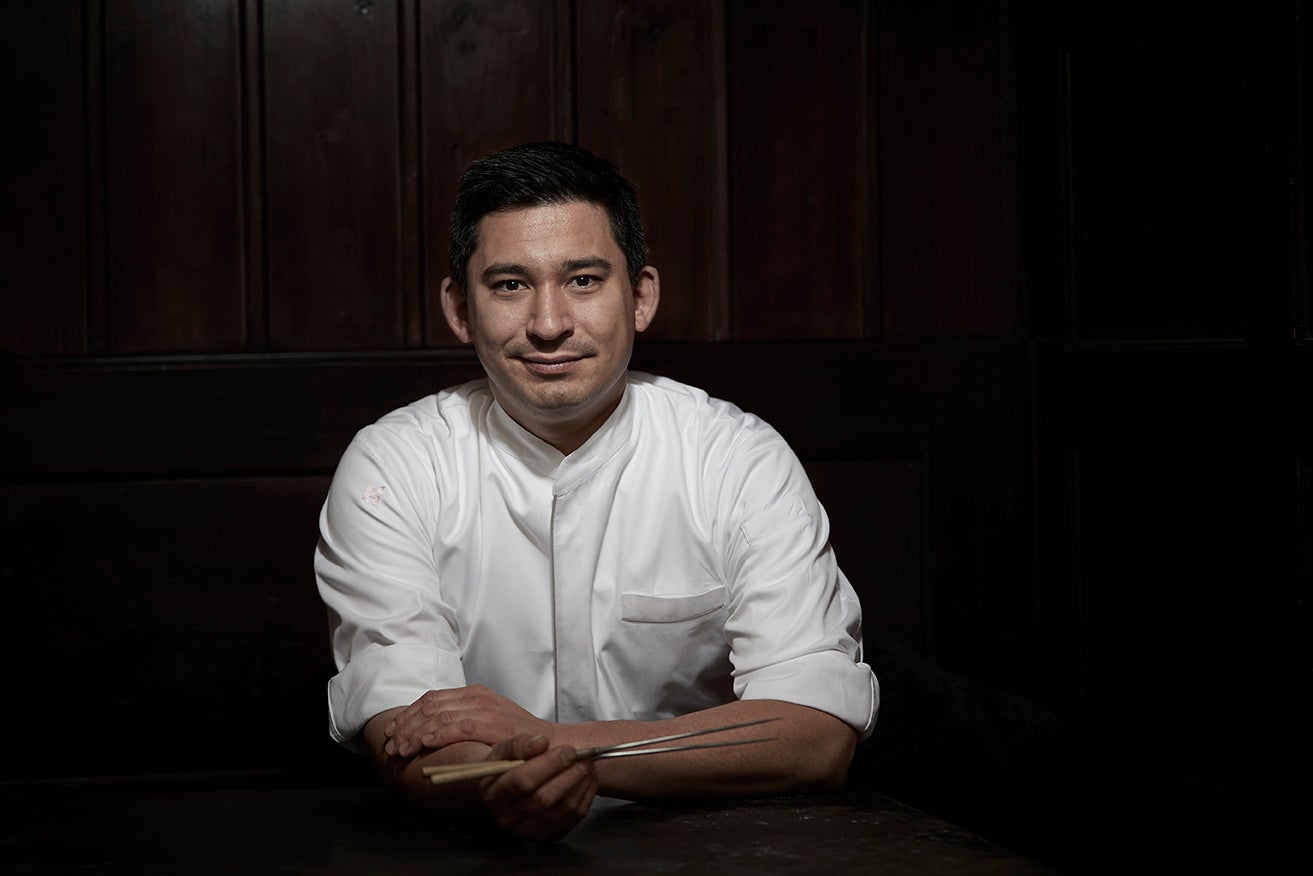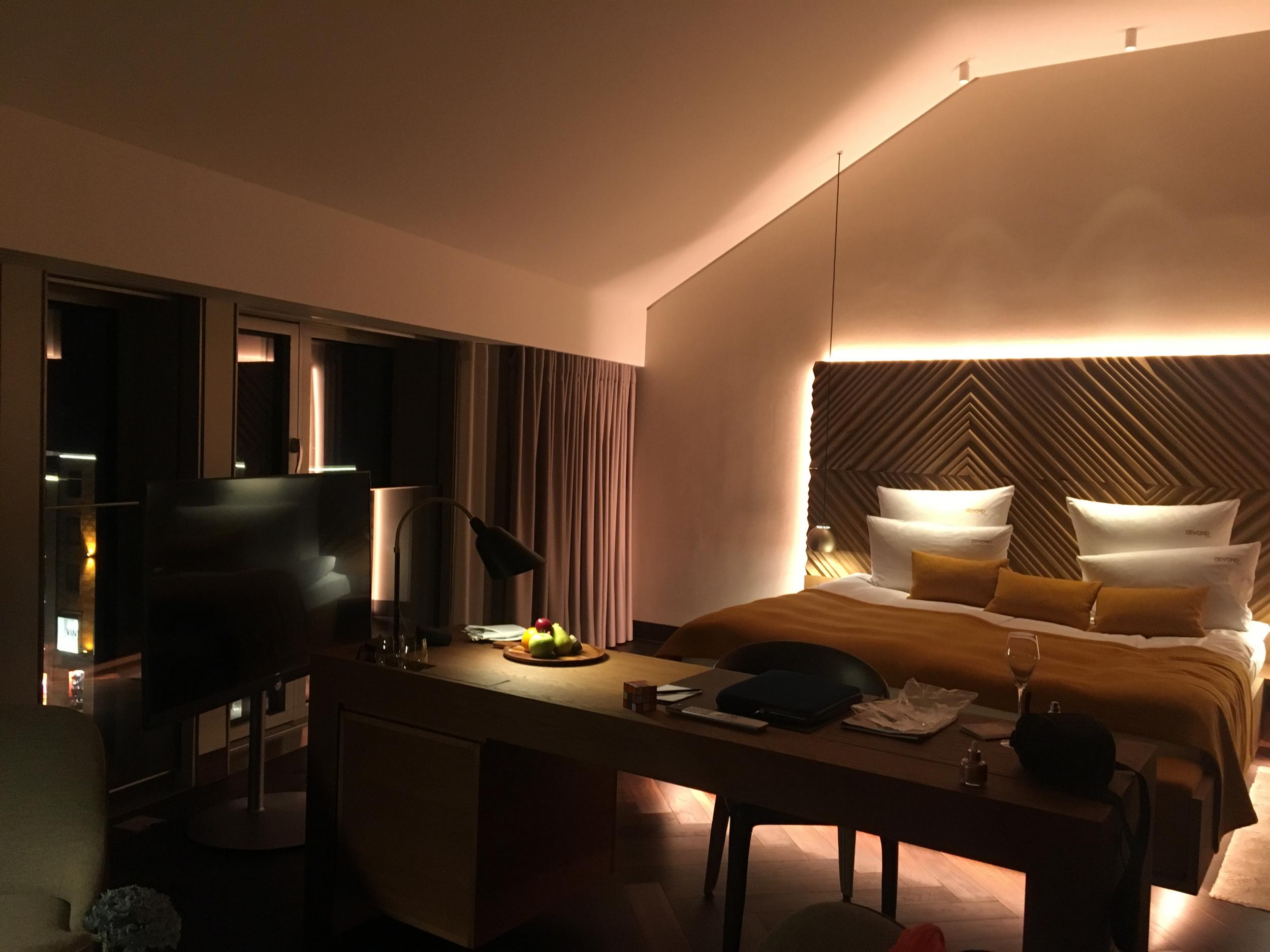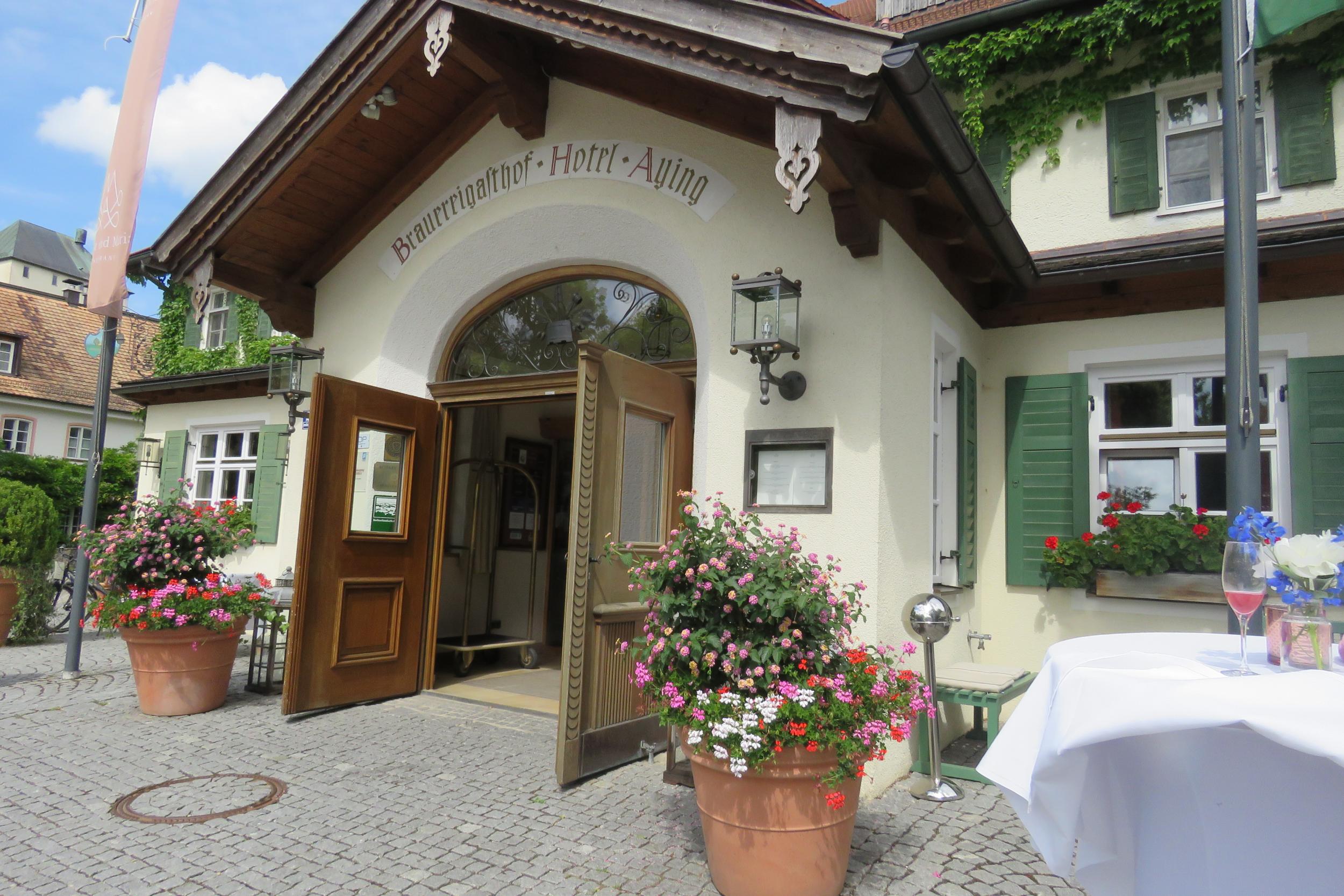The Independent's journalism is supported by our readers. When you purchase through links on our site, we may earn commission.
Forget Oktoberfest - here's why foodies are flocking to Munich
This laid-back Bavarian city is swapping schnitzel and steins for a progressive dining scene

Things are changing in Munich. Alongside the heavy, meat-laden dishes of old, there’s a growing trend for lighter eating, with an upsurge of dim sum, salads, Japanese and progressive fine-dining on the city’s menus.
One restaurant, Servus Heidi, has kept a foot in both camps, sticking with tradition while adding a modern twist. Chef Yves Dayo’s menu – “combining sophistication with modern Bavarian cooking” – is sourced locally and features beetroot tart with goat’s cheese, wild herb salad and candied walnuts; braised ox cheeks with marinated red cabbage, baby carrots, potato and celery purée; and a dessert of apricot dumplings with berries and buttermilk.
Taking things further, many of Munich’s leading chefs are ignoring the classics completely, instead working closely with local artisan vegetable and fish producers. Charming and charismatic, Japanese-German Tohru Nakamura, of two-Michelin-starred Werneckhof, sees local ingredients as key to the way he cooks, even if he does add yuzu, miso and tofu to his highly creative menus. Dishes may include char with aubergine and ginger radish, or Danube salmon with smoked eel, artichoke and yuzu. But it involves a leap of faith.

“When Werneckhof opened, the owners were nervous about rocking the food boat and when people first came they expected us to serve roast pork and schnitzel,” says Nakamura. “Some didn’t like our new menus and left!”
“If I cook you chateaubriand or lobster we could be anywhere in the world,” he adds. “What makes the Munich food scene so exciting is our incredible local ingredients.” He lists Danube salmon or huchen; burbot, a huge and very ugly local fish, not to be confused with turbot; lake trout and venison. “The techniques can come from anywhere but the raw ingredients have to come from here.”
Martin Fauster, Michelin-starred head chef at Munich’s iconic Hotel Königshof, sees Bavaria as a hidden gem.
“Young chefs are creating a new German cuisine. Five years ago there were few people working with sprouts or Jerusalem artichokes. But that’s all changed.” His lake trout with avocado, green almonds and elderflower buttermilk is among the most memorable dishes I’ve ever eaten, testament to this new wave.
While beer gardens and old-style wurst and schnitzel still have their place – and can definitely hit the spot – one of the best places for local specialities is Der Dantler, a cosy, atmospheric delicatessen. Here, highlights include obatzda – ripe camembert mashed with butter, cream cheese and red onions and seasoned with paprika – decorated with flowers and served on a rock; the tiniest kohlrabi; and snippets of smoked fish from nearby Starnberger Lake, all served with excellent wines.

While the world has been waxing lyrical over the country’s beers, the German wine industry has been creating superb bottles – look out for aromatic white Scheurebe and Spätburgunder, German pinot noir, as well as riesling.
Munich’s hotels are also reinventing themselves. Boutique hotel Beyond by Geisel is billed as a home from home – even if it does feel more like staying with a particularly sophisticated, well-heeled friend. The kitchen is open at any time: from gourmet breakfast to midnight snack, just help yourself. If you’d rather not, concierge Daniel and his team combine effortless charm with exemplary pancakes and eggs benedict.

At night, a bottle of smooth red wine, charcuterie and obatzda were perfect to curl up with in the cosy yet über-stylish bar lounge, where the famous Marienplatz glockenspiel seems so close you can almost reach out and touch it.
Even if your aim is to avoid biergarten boozing at the world’s largest beer festival, I’d urge you to visit private brewery Brauerei Ayinger, owned by the seventh generation of the Inselkammer family. Known for their hospitality as much as for their beers (apparently President Putin is a fan), picture-postcard-perfect four-star Brauereigasthof Hotel Aying offers more of a fine dining experience than your typical pub lunch – there’s not a tankard in sight.

My slow-cooked pork belly with beer and fennel reduction and spelt matched perfectly with the beautifully balanced sweet malt flavours of Ayinger Celebrator Doppelbock beer, while lake trout with pickled cucumber was light enough to match well with Ayinger Brauweisse, a smoothly elegant pale beer with subtle spicy, fruity notes. Afterwards, the temptation to bed down in one of their tasteful bedrooms was strong… But that will have to wait for next time.
Join our commenting forum
Join thought-provoking conversations, follow other Independent readers and see their replies
Comments
Bookmark popover
Removed from bookmarks